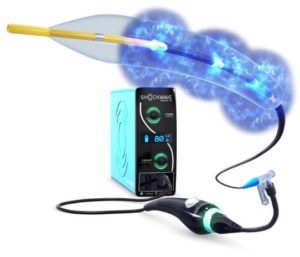 Shockwave Medical has initiated a prospective coronary intervention study consisting of all female patients—EMPOWER CAD.
Shockwave Medical has initiated a prospective coronary intervention study consisting of all female patients—EMPOWER CAD.
The study will seek to determine whether results from earlier coronary intravascular lithotripsy (IVL) studies with the Shockwave C2 Coronary IVL Catheter, showing similar safety outcomes across both sexes, can be replicated in an expanded, real-world population of female patients with severely calcified coronary lesions.
The prospective, multicentre registry will enrol up to 400 female patients with symptomatic ischaemic heart disease in up to 50 investigational centres in the USA and Europe and will include a three-year follow-up.
EMPOWER CAD co-principal investigators Margaret McEntegart (Columbia University Medical Center/New York-Presbyterian Hospital, New York, USA) and Alexandra Lansky (Yale University School of Medicine, New Haven, USA) along with the study’s European lead, Nieves Gonzalo (Hospital Clinico San Carlos, Madrid, Spain), announced the study at the 2022 Transcatheter Cardiovascular Therapeutics meeting (TCT, 16–19 September, Boston, USA).
“When it comes to coronary artery disease (CAD), females are often under-investigated, under-treated and have less favourable outcomes than males due to a variety of different factors,” said McEntegart. “Previous reports with atherectomy have shown that females with calcified CAD are more susceptible to adverse procedural outcomes compared to males. Despite often being more challenging to treat, female patients are under-represented in published data, and there have been no dedicated prospective studies performed on this population. EMPOWER CAD will be an extremely valuable study to better inform interventional cardiologists on the optimal treatment strategy for these complex patients.”
“Early retrospective analyses have suggested that coronary IVL can potentially bridge the disparity in clinical outcomes between sexes, however the studies only included a limited number of females with strict inclusion criteria,” said Lansky. “Information that will be gathered in EMPOWER CAD will be immensely valuable, as it will provide more robust data with longer-term outcomes in a larger, all-comers patient cohort to determine whether coronary IVL should be considered the front-line calcium modification approach in female patients.”











